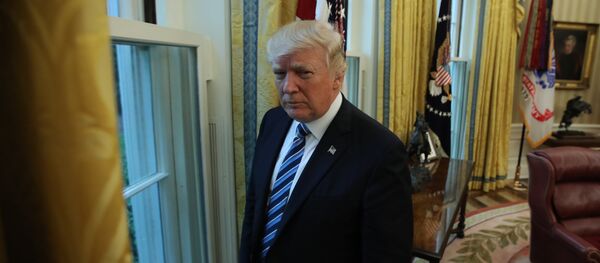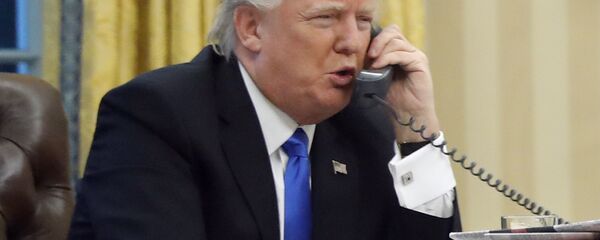Trump's contradictory foreign policy statements "could bewilder even seasoned diplomats," the analyst pointed out. "For his part, the current US president views them as pointing to his resilience and an ability to make deals since he is a self-styled dealmaker-in-chief who has earned a fortune."
In addition, the fate of the Paris Agreement on climate change and the Joint Comprehensive Plan of Action (JCPOA), a deal between the P5+1 countries and Iran on Tehran's nuclear program, remains unclear. Trump has been critical of both deals, indicating at times that the US could withdraw from both.
Trump "has used the international arena to perform for his domestic audience whose support he will need [for the 2020 presidential election]," Dubovitsky noted.
Trump's other domestic misfortunes included the lack of support for the GOP health care plan, which was meant to repeal and replace Obamacare, as well as the failure to push through an executive order on immigration and later its revised version.
"In moments like these, world leaders tend to turn to foreign policy as a sheet anchor. Foreign policy victories could boost international clout and prestige at home," the analyst said. "For Trump, Syria has become such a sheet anchor."
Dubovitsky was referring to the Pentagon's massive airstrike on the Shayrat air base, unleashing 59 Tomahawk missiles on a military facility operated by the Syrian Arab Army (SAA). The operation was carried out as retaliation to President Bashar al-Assad allegedly use of chemical weapons against civilians on the outskirts of Khan Shaykhun, a town in the rebel-held province of Idlib.
Washington's unprecedented offensive came in sharp contrast to the White House's previous statements on its priorities in the war-torn Arab country. Earlier, Trump repeatedly said that fighting radical groups and Daesh in particularly was the highest priority of his administration in the Middle East.
"One could have hardly expected that US Secretary of State Rex Tillerson's visit to Moscow would result in a 'reset' [in America's relations with Russia] following these aggressive actions," the analyst said. However, "even if Trump wanted to send a signal to Russia with this military operation, it has had an adverse effect. Moscow suspended a memorandum on flight safety over Syria soon after [the Pentagon's airstrike]."
The North Korean issue, as well as President Bashar al-Assad's alleged chemical attack grabbed the headlines in the US and across the globe.
"The alleged 'Russian interference' was forgotten to such an extent that Senate Minority Leader Chuck Schumer has publicly expressed discontent with the slow pace of the investigation. His message did not fall on deaf ears. On Thursday, the Pentagon launched a probe into Mike Flynn, Donald Trump's former national security adviser," Dubovitsky said. "Trump's diversionary tactics worked, but for a while."
Never miss a story again — sign up to our Telegram channel and we'll keep you up to speed!




